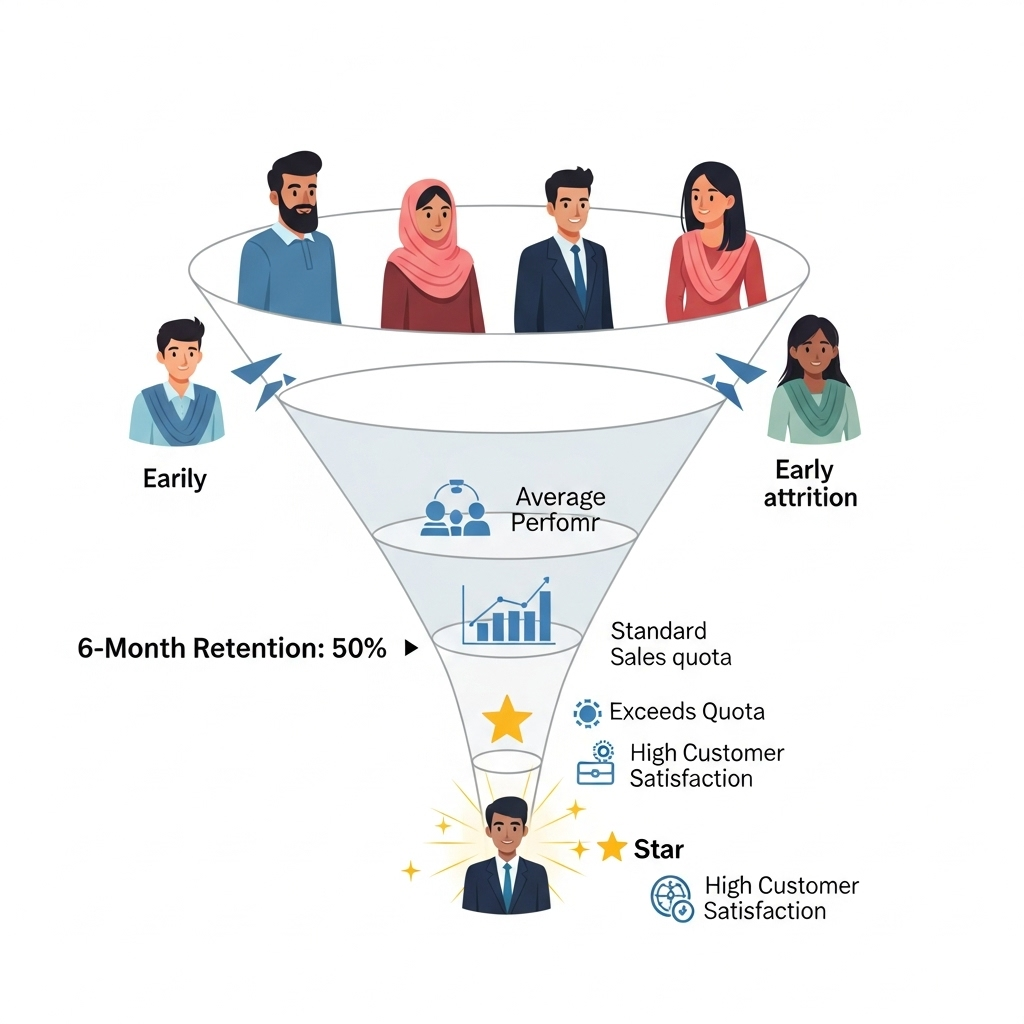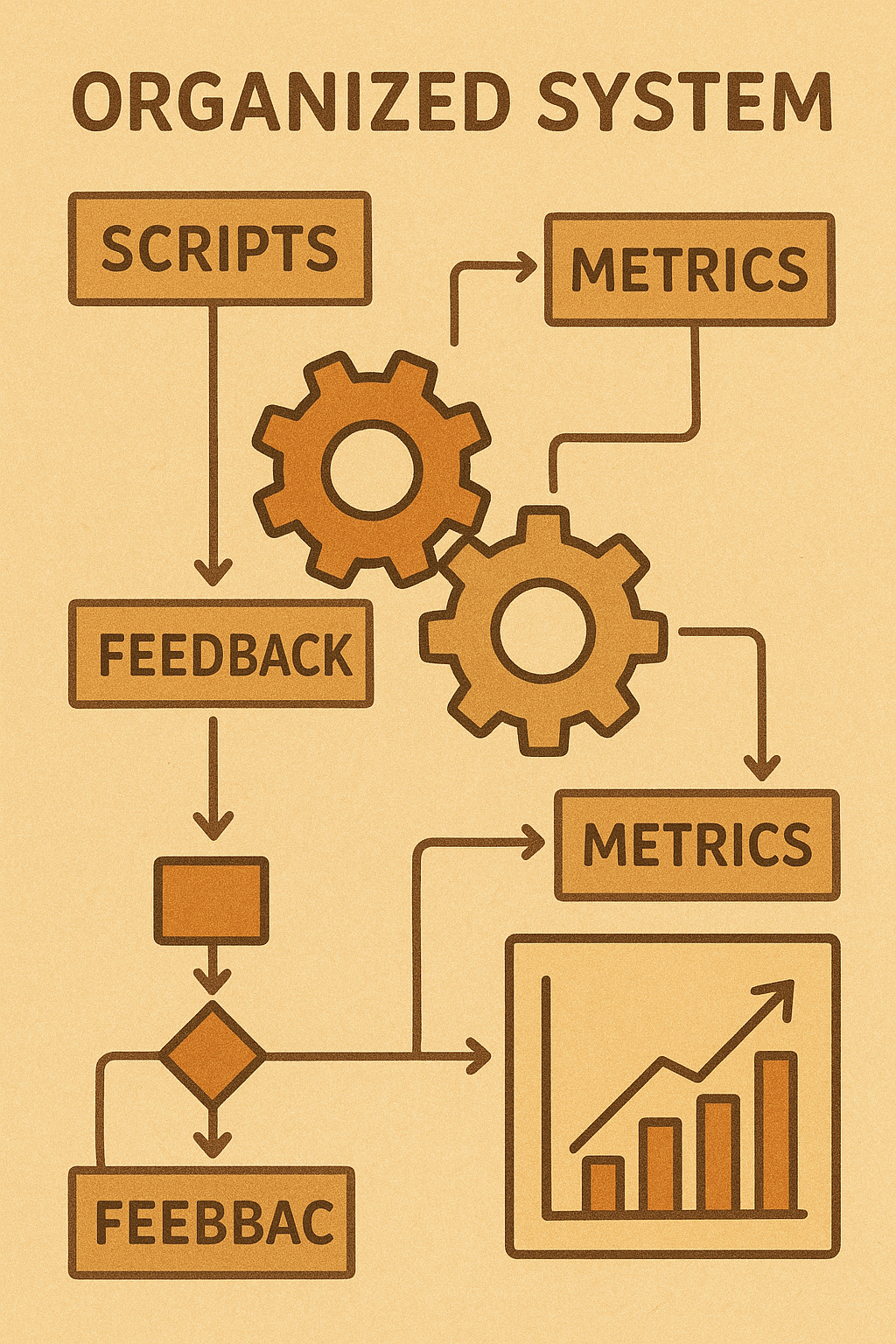Building Your Sales Foundation - From Pitch to Team
Understand how to build scalable sales foundations for businesses. Post based on advice from other startup founders on how to grow sales

Summary
Master the fundamentals of sales for bootstrapped businesses:
- Develop effective pitches through in-person testing
- Build high-performing teams with strategic hiring
- Create systematic processes that scale beyond individual performance.
Key Points
- Test pricing models in-person to understand customer value perception and reactions
- Hire 4 salespeople expecting natural attrition: 2 will leave, 1 will be average, 1 will be rockstar
- Focus on systematic processes over individual sales heroics for scalable growth
- Implement 3-month probation periods with clear performance expectations and training
- Use quarterly bonuses instead of commissions to reduce costs and improve retention
Key Takeaways
- In-person sales experience forms the foundation for all future sales systems
- Hunger for success often outperforms established track records in startup environments
- Systematic training and clear scripts enable consistent team performance
- Data-driven decisions outperform intuition-based sales management approaches
- Weekly success story sharing accelerates team learning and identifies replicable strategies
Introduction
Most startup sales advice assumes you have venture capital funding and can afford expensive mistakes. This guide focuses on practical strategies for bootstrapped entrepreneurs who need to build sustainable sales processes with limited resources and zero room for error.
Developing Your Sales Pitch That Actually Converts
Creating an effective sales pitch isn't about crafting the perfect presentation—it's about understanding what makes customers buy and systematically testing your assumptions in the real world.
Start with In-Person Sales Experience
Why does this matter so much? When you sell face-to-face, you see immediate reactions. You notice when prospects lean forward with interest or when their eyes glaze over. You hear the questions they actually ask, not the ones you think they'll ask.
Sell your product personally for at least 3-6 months before developing any formal pitch process. This hands-on experience becomes the foundation for everything else you build. You'll discover which features truly matter to customers and which ones create confusion.
Master the Psychology of Pricing
Here's something most entrepreneurs get wrong:
Pricing isn't just about covering costs and making profit. Pricing directly impacts how customers perceive value in ways that might surprise you.
If you offer anything for free, people become skeptical about quality. They wonder what's wrong with it. Conversely, when you undervalue your product, customers find less value in it and use it less frequently. People tend to engage more when they pay premium prices.
Test multiple pricing models with different customer segments. Try charging some customers premium rates, then later reduce prices for those who paid more. This creates a sense of getting a great deal while teaching you about price sensitivity across different market segments.
Simplify Your Feature Set
Too many features create confusion and objections. Customers start calculating whether they're paying for things they won't use. This mental math kills deals faster than almost anything else.
Focus on core value propositions that solve specific problems rather than showcasing every capability your product offers. Develop clear customer success stories that maintain attention throughout your pitch. Never let slides or presentations become the focus—the conversation and relationship matter more than any deck.
Adopt a Buyer's Mentality
Before every pitch, understand what's happening in your buyer's mind.
- What pressures are they facing?
- What metrics do they need to improve?
- What fears keep them awake at night?
This perspective shift transforms your pitch from "here's what we do" to "here's how we solve your specific problem." The difference in response rates is dramatic when prospects feel understood rather than sold to.

Building and Managing High-Performing Sales Teams
Sales team management for startups or small business requires different strategies than well-funded startups. You can't afford expensive mistakes or long learning curves that venture-backed companies can absorb.
The Strategic 4-Person Hiring Approach
Here's the reality of sales hiring that most entrepreneurs learn the hard way - expect significant churn and plan accordingly. When building your team, hire four people simultaneously because two will leave within the first few months, one will become an average performer providing basic bandwidth, and one will emerge as a rockstar.
This approach ensures continuity while accounting for natural attrition rates in sales roles. It might seem expensive upfront, but it's far more cost-effective than dealing with constant understaffing and rushed hiring decisions.
Focus on Hunger Over Experience
Hire people who have something to prove rather than those who have already proven themselves. Hunger for success often outperforms past achievements, especially in startup environments where adaptation and resilience matter more than established track records.
Look for three key qualities during interviews that predict sales success:
Entrepreneurial Spirit: Ask about any independent projects they've pursued, regardless of size. Someone who started a small side business, freelance operation, or even a college club demonstrates initiative and ownership mentality. These people understand what it takes to create something from nothing.
Sales Aptitude: Test their ability to think on their feet with practical exercises. Ask them to sell something in the room, then immediately ask them to sell the opposite choice. For example: "Sell me this pen. Great, now convince me why I should use a pencil instead." This reveals adaptability and natural persuasion skills.
Creative Thinking: Use unexpected questions to assess mental agility and personality:
- "If there was a movie made about you, who would play you?"
- "What would you title your autobiography?"
- "If you won a large lottery, what would you do next?"
- "If you received a large inheritance and decided not to work, how would you spend your life?"
These questions reveal ambition, self-awareness, and thinking patterns that predict long-term sales success better than traditional interview questions.
Implement Clear 3-Month Probationary Periods
Make expectations crystal clear from day one. Everyone understands that failing to meet targets within three months results in termination. This clarity benefits both parties and prevents prolonged underperformance situations that drain team morale.
During probation, pay close attention to whether new hires ask questions. People who never seek clarification or guidance typically struggle in sales roles long-term. Curiosity and continuous learning are essential traits for sales success.
Create Comprehensive Training Programs
Develop boot camps that cover all aspects of your sales process before anyone makes their first customer call. Include clear product demonstrations, competitive positioning, and objection handling techniques.
End training with simulated sales calls where trainees interact with different team members playing various customer scenarios:
- New leads
- Interested prospects
- Technical discussions
- Pricing negotiations. This preparation dramatically improves early performance and builds confidence.

Systematic Sales Process Development
Individual sales heroes can't build scalable businesses. You need systems that enable multiple team members to achieve consistent results regardless of their natural talent levels.
Share Success Stories Weekly
- Document and communicate how successful deals happened.
- What specific approaches worked?
- Which objections came up and how were they handled?
- Which questions opened up productive conversations?
This knowledge sharing accelerates team learning and identifies replicable strategies. It also builds confidence by showing that success follows patterns, not just luck or individual charisma.
Maintain 80% Target Achievement Standards
Sales personnel should achieve at least 80% of their targets consistently. Anyone who can't reach this threshold after the initial three-month period should be replaced. This standard ensures team reliability and predictable revenue.
This might seem harsh, but under performers drag down team morale and create unrealistic expectations about what's acceptable. High standards attract high performers and repel those who aren't serious about results.
Use Quarterly Bonuses Instead of Commission
Pay bonuses every 3-6 months rather than immediate sales commissions. This approach saves money when people leave early while maintaining motivation for consistent performers.
It also encourages longer-term thinking and relationship building rather than transactional approaches that might close quick deals but damage customer relationships.
Set Realistic, Data-Based Goals
Only establish targets that can actually be achieved based on real performance data from your team, not industry benchmarks or expert opinions. Unrealistic goals demoralize teams and waste effort.
Track actual performance for several months before setting targets. Goals should stretch people but remain achievable for competent performers who follow your system.
Require Consistent Scripts and Processes
Every salesperson should follow proven scripts with maximum two changes per week. This discipline lets you track what works and what doesn't while maintaining quality standards across your team.
Scripts don't mean robotic conversations. They provide frameworks that ensure important points get covered while allowing personality and adaptation to show through.
Conduct Monthly Training Sessions
Keep everyone updated on process changes and reinforce best practices through regular training. This consistency prevents skill degradation and ensures new techniques spread throughout the team.
Use these sessions to:
- Address common objections
- Share new success stories
- Practice challenging scenarios. Only then will continuous improvement becomes part of your culture.

Create Healthy Competition
Design competitions that encourage individual achievement while promoting team collaboration. Reward sales personnel with small tokens for completed deals and provide public recognition for exceptional performance.
Share customer success stories regularly to keep everyone energized about the impact they're creating. When people understand how their work improves customers' lives, motivation stays high even during difficult periods.
Establish Dedicated Development Resources
Have separate team members responsible for:
- Hiring new personnel
- Training recruits
- Ongoing training for existing personnel
- Experimenting with new processes outside the main sales team
This specialization ensures critical functions receive proper attention while your main sales team focuses on revenue generation.
Refer to Part 2 of Sales Advice to understand about Advanced sales scaling strategies for growing businesses
FAQ
How long should I personally sell before building a sales team? Sell personally for at least 3-6 months to understand customer reactions, objections, and successful approaches. This hands-on experience becomes the foundation for training others and building effective systems that work in real-world situations.
What's the most important metric for sales team performance? Focus on the 80% target achievement rate. Salespeople should consistently hit at least 80% of their goals. Anyone who can't reach this threshold after 3 months should be replaced to maintain team reliability and protect team morale.
Why hire 4 people when I only need 2 salespeople? Sales hiring has predictable attrition patterns: 2 will leave within months, 1 becomes average, 1 becomes excellent. Planning for this reality prevents understaffing crises and rushed hiring decisions that lead to poor choices.
Should I hire experienced salespeople or hungry newcomers? Hire people with something to prove rather than those who have already proven themselves. Hunger for success often outperforms past achievements, especially in startup environments requiring constant adaptation and creative problem-solving.
How do I know if someone will succeed in sales during interviews? Test three key areas:
- Entrepreneurial spirit (have they built anything independently?)
- Sales aptitude (can they sell and think on their feet?)
- Creative thinking (unexpected questions reveal personality and mental agility).
What if my top performer doesn't want to follow scripts? Everyone follows the same system, including top performers. Scripts ensure quality control and let you identify what actually works versus what people think works. Individual variation undermines your ability to scale and train others effectively.
Definition of Key Terms
- Customer Acquisition Cost (CAC): Total cost of acquiring a new customer, including marketing, sales, and onboarding expenses
- Sales Cadence: The frequency and types of touchpoints (emails, calls, messages) used throughout the sales process
- Ideal Customer Profile (ICP): Detailed description of the customer most likely to purchase and succeed with your product or service
- Traction: General positive signals like interest and engagement, distinct from actual revenue-generating sales
- Bootstrapped Business: Company built without external venture capital funding, relying on revenue and personal resources